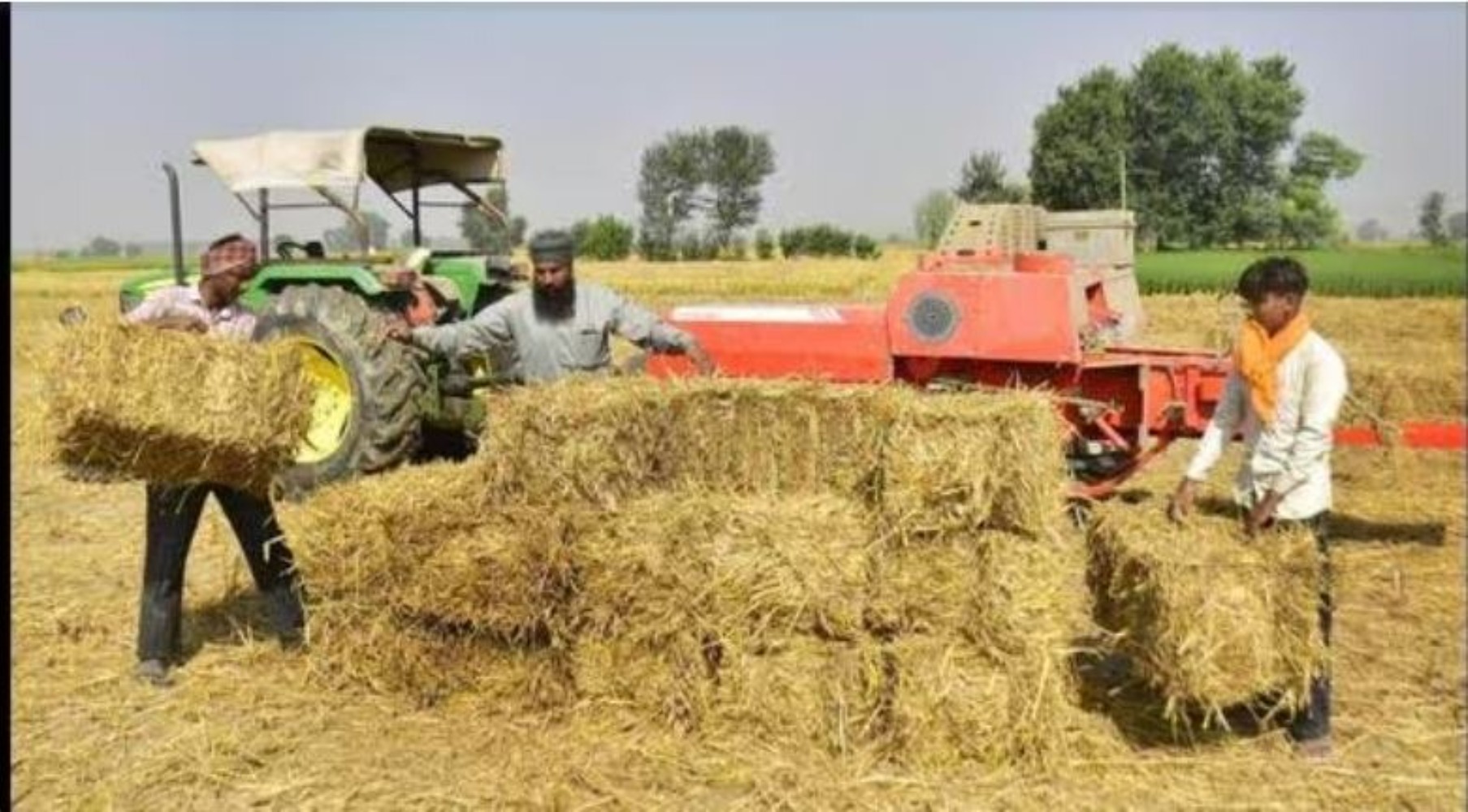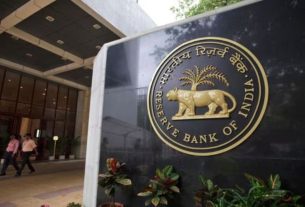Devanjana Mukherjee, Khabri Media
While the shift from stubble burning to selling stubble bales is promising, and challenging. For one, it requires initial investment in baling machines, which can be expensive for small-scale farmers.
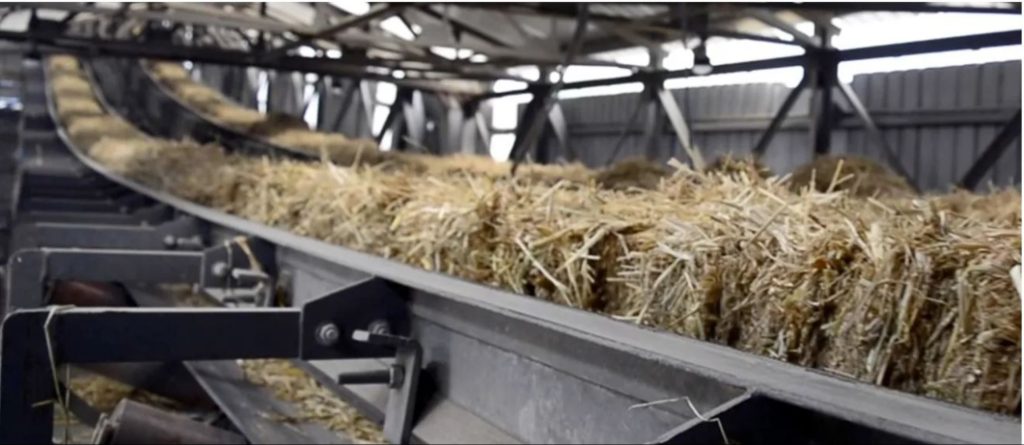
Pic: Social Media
In a surprising turn of events, farmers in the northern Indian state of Punjab have found a unique and lucrative solution to their stubble burning problem. Stubble burning, a common practice after the rice harvest, has been a significant environmental concern due to its contribution to air pollution and its detrimental effects on human health.
However, the farmers have now discovered a more sustainable and profitable way to deal with agricultural waste: selling stubble bales. This newfound approach is not only reducing pollution but also turning a profit for these enterprising farmers. Several of Punjab’s farmers are now making money out of stubble, a much maligned farming byproduct that is traditionally doomed to go up in smoke.
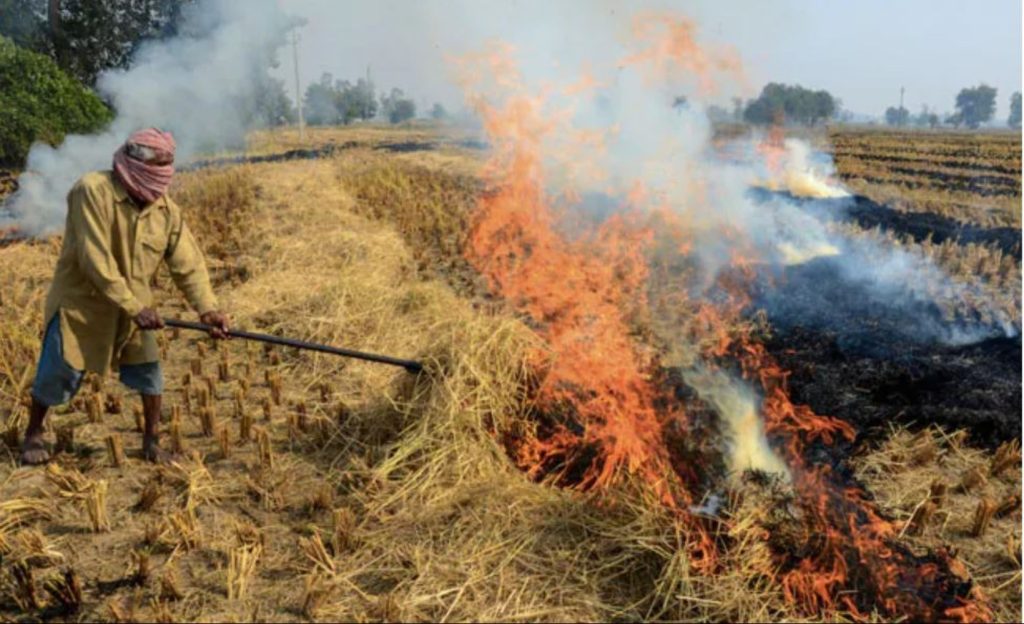
Pic: Social Media
Farmers in Punjab are often blamed for causing pollution with their practice of setting fire to paddy straw, but many of them have taken to selling it to biomass plants and boilers for lakhs. One such farmer who bought a baler last year to turn stubble into bales and selling it to businesses. Baler, an agriculture machine, is connected with a tractor and collects stubble from a field to turn them into bales.
DON’T MISS: AQI at ‘worst’ in NCR
The state has been grappling with the adverse consequences of stubble burning. After the rice harvest in October and November, farmers traditionally set their fields on fire to quickly clear the land for the next crop, particularly wheat. This practice releases a significant amount of pollutants into the atmosphere, including harmful particulate matter and greenhouse gases, leading to severe air quality problems in the region.
Last year, farmers had supplied 1,400 tonne of stubble and this year they are expecting to supply 3,000 tonne of straw to other regions and communities. For instance, bales are being sold to Gujjar community for cattle feed. Stubble is also collected from nearby villages, transformed it into bales and then supplied it to a power generating company in Pathankot.
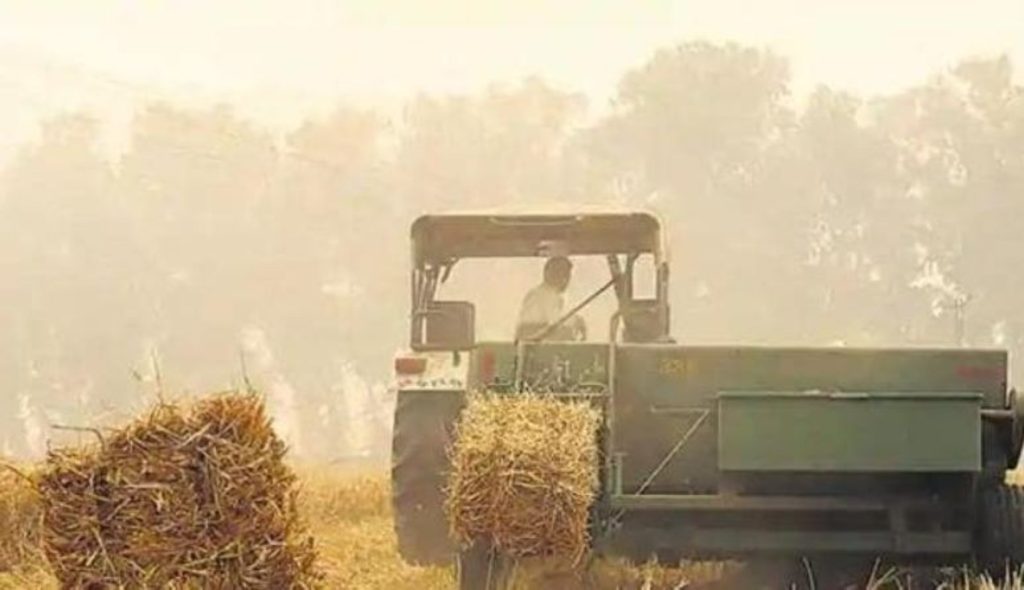
Pic: Social Media
More and more farmers in the state are buying balers with the increase in demand for stubble by biomass plants, paper mills, and boilers. The Punjab government gives subsidy on the purchase of a baler as part of the ex-situ management of stubble. The state government has already made it mandatory for the brick kilns to use straw pellets for 20 per cent of their total fuel need.
With about 31 lakh hectares of paddy area, Punjab produces around 180-200 lakh tonne of straw every year, of which 120 lakh tonne is under management through in-situ (mixing crop residue in fields) and around 30 lakh tonne through ex-situ (using stubble as fuel) methods.

